The Kaveri Refresh 'Godavari' Review: Testing AMD's A10-7870K
by Ian Cutress on June 1, 2015 11:59 AM ESTProfessional Performance: Linux
Built around several freely available benchmarks for Linux, Linux-Bench is a project spearheaded by Patrick at ServeTheHome to streamline about a dozen of these tests in a single neat package run via a set of three commands using an Ubuntu 11.04 LiveCD. These tests include fluid dynamics used by NASA, ray-tracing, OpenSSL, molecular modeling, and a scalable data structure server for web deployments. We run Linux-Bench and have chosen to report a select few of the tests that rely on CPU and DRAM speed.
C-Ray: link
C-Ray is a simple ray-tracing program that focuses almost exclusively on processor performance rather than DRAM access. The test in Linux-Bench renders a heavy complex scene offering a large scalable scenario.
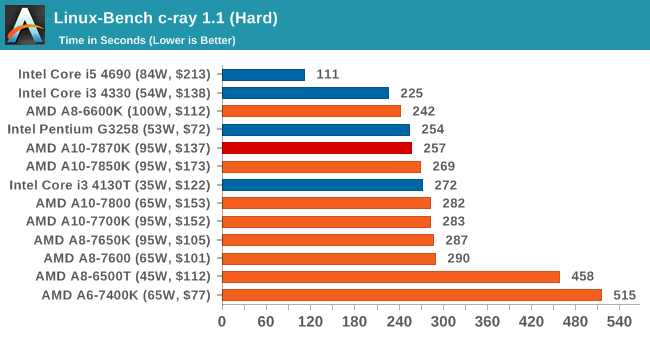
NAMD, Scalable Molecular Dynamics: link
Developed by the Theoretical and Computational Biophysics Group at the University of Illinois at Urbana-Champaign, NAMD is a set of parallel molecular dynamics codes for extreme parallelization up to and beyond 200,000 cores. The reference paper detailing NAMD has over 4000 citations, and our testing runs a small simulation where the calculation steps per unit time is the output vector.
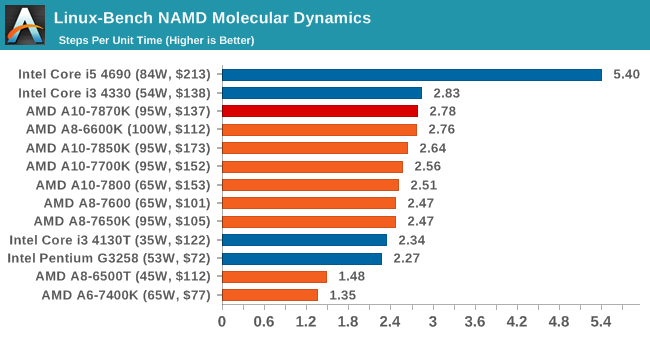
NPB, Fluid Dynamics: link
Aside from LINPACK, there are many other ways to benchmark supercomputers in terms of how effective they are for various types of mathematical processes. The NAS Parallel Benchmarks (NPB) are a set of small programs originally designed for NASA to test their supercomputers in terms of fluid dynamics simulations, useful for airflow reactions and design.
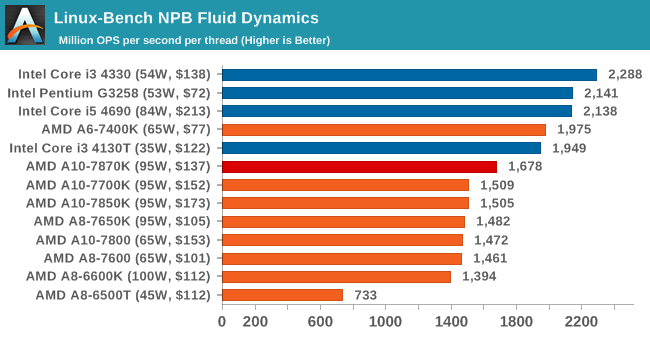
Redis: link
Many of the online applications rely on key-value caches and data structure servers to operate. Redis is an open-source, scalable web technology with a strong developer base, but also relies heavily on memory bandwidth as well as CPU performance.
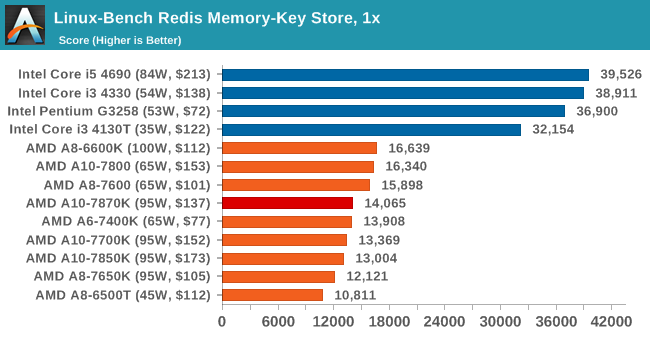
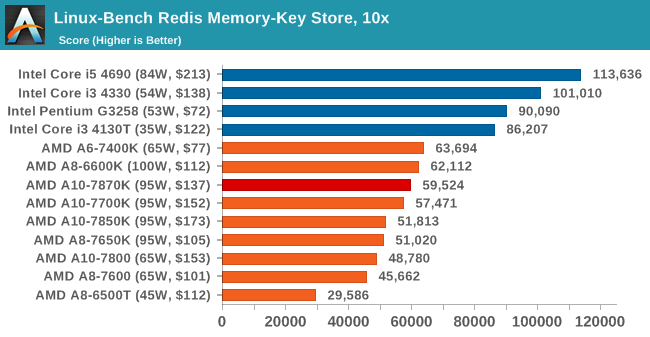
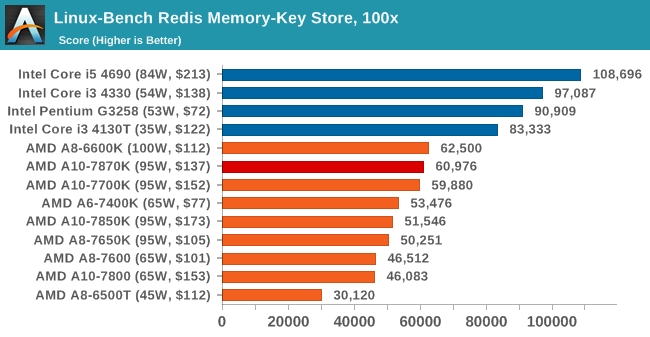










140 Comments
View All Comments
Lolimaster - Tuesday, June 2, 2015 - link
Pls check the spanish website noticias3d, 860/870K are fine for crysis 3 you wont suffer any kind of lag, just lower fps vs more expensive cpu's either AMD/Intel quadcore.nikaldro - Tuesday, June 2, 2015 - link
Lower FPS = lag. It may be a bit better in this single case, but they're generally about even.Jimster480 - Tuesday, June 2, 2015 - link
They are not at all even. In the original G3258 tests it was shown that the G3258 lost to a 760k Athlon in most gaming tests. Only exceeding it by a couple FPS in single threaded games. Its really a pretty horrible chip.nikaldro - Tuesday, June 2, 2015 - link
The results i saw were quite the opposite.Jimster480 - Tuesday, June 2, 2015 - link
The 860k doesn't lag in Cyrsis 3. They have 4 threads and all modern instruction sets. The G3258 does not.nikaldro - Tuesday, June 2, 2015 - link
4 threads with low IPC, and it costs more.Margalus - Monday, June 1, 2015 - link
or far cry 3, which won't even start without a quad core. It is mandatory to have a quad core if you want to play that one.geekman1024 - Monday, June 1, 2015 - link
Where did you get that information? No, you don't need a quad core CPU to play FC3. I played it on an Athlon 64 x2, and it's pretty playable (with HD7850).Neither did the recommended PC spec demanding a quad core CPU.
http://far-cry.ubi.com/fc-portal/en-gb/community/d...
Cryio - Monday, June 1, 2015 - link
He obviously wanted to type FC4. That one only accepts quads.AS118 - Monday, June 1, 2015 - link
Honestly, with DirectX12 coming out, a dual core probably won't cut it in the future. The GTX 750 is a better investment. If asynchronous dual graphics that's vendor-neutral becomes a thing, the GPU part of the APU could work with the GTX 750 to render stuff, although if cost is a factor, a 7870K is good enough for 30fps 720 to 1080p gaming (although 720p to 900p is more reasonable imho) by itself without a dedicated GPU.